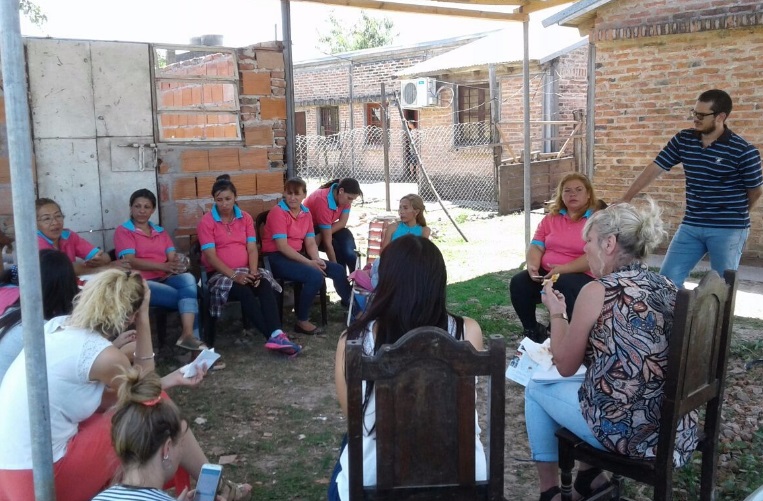The idea is to scale certain experiments which had already been taking place in a tentative way in some modalities such as the "Argentina Trabaja" and the "Ellas Hacen" programmes

The European Union Programme for social cohesion, EUROsociAL+, supports to the Secretariat of Social Economy of the Ministry of Social Development of Argentina in the design of an innovative income generation methodology within the Social income with work Conditional Cash Transfer Programme. As part of this collaboration, a mission by Austrian expert Dagny Skarwan took place in Argentina.
The support is aimed at adding a new modality which links this programme with technology training and profitable undertakings, especially in relation to innovative and sustainable technologies which can benefit the community that the participants live in. The idea is to scale certain experiments which had already been taking place in a tentative way in some modalities of the CCT programme to a national level, such as the Argentina Trabaja (1) [Argentina Works] Programme and the Ellas Hacen (2) [Women Do] Programme. In these experiments, some of the recipients of financial aid are also conducting activities that benefit the whole community. Thanks to the technical assistance of the INTA (National Institute for Agricultural Technology), INTI (National Institute for Industrial Technology) and other institutions, these people have been trained to produce tools that respond to the unmet needs of the community, such as solar water heaters; cheap, green wood burners, bicycle-mounted farm sprayers, orthopaedic valves and windbreak plantations. They are currently being trained to make cisterns, drinking water plants and postural wheelchairs. Videos from the Secretariat of Social Economy show some of these initiatives (cisterns and solar water heaters).
During the mission, the expert visited some of these experiments in Buenos Aires Province (Ezeiza) and in Chaco Province (Puerto Tirol) to find out the vision of the recipients, as well as the different territorial stakeholders participating in these practices. Based on these visits, the expert will support the Secretariat in designing this methodology at a national level. What’s more, pilot locations have been identified to develop this modality, its management tools and monitoring mechanisms.
(1) Men and women from 18 to 65, with no formal employment and who do not receive any payments from pensions, retirement or national or provincial income schemes.
(2) Female victims of gender violence, sexual trafficking or exploitation, women with disabled children, women released from the prison system, trans women.
Área de políticas sociales / Social policies area. IILA / EUROsociAL+



